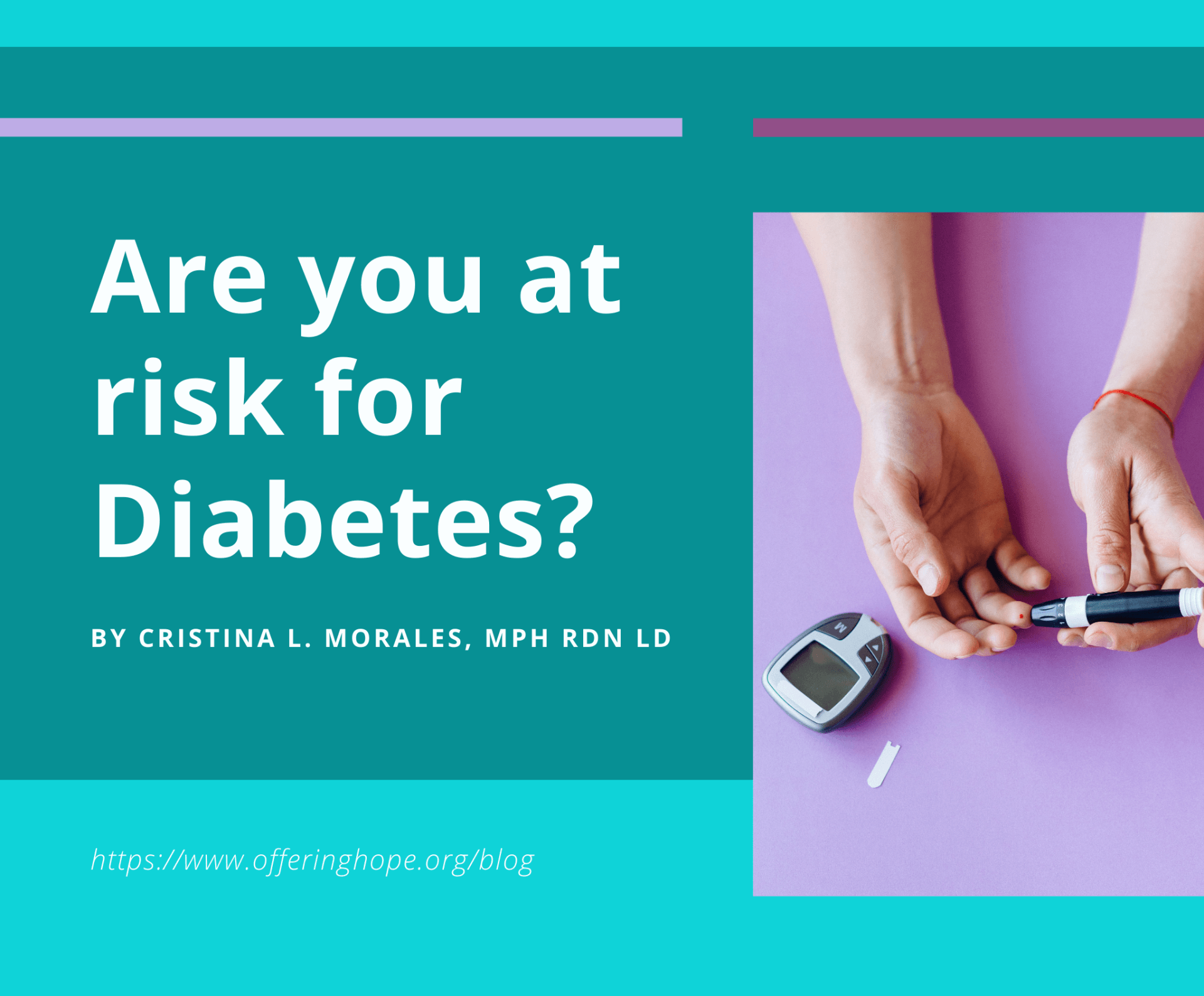Recent Posts
Are you at risk for Diabetes?

November is American Diabetes Month and a good time to check your risk for diabetes. According to the National Institute of Diabetes and Digestive and Kidney Diseases (NIH), there is an estimated 34.2 million people in the United States (US) living with some form of diabetes. There are three main types of diabetes; type 1, type 2, and gestational diabetes. Less common forms of diabetes are but have similar symptoms and health consequences are, MODY (maturity-onset diabetes of the young) and LADA (latent autoimmune diabetes in adults). Diabetes, also known as Diabetes Mellitus, is a complex and chronic health condition, that affects many individuals across the lifespan and backgrounds. Today, there are several treatment options available for each type of diabetes and each one requires proper treatment and management.
In my practice, I often explain to clients the differences between Type 1 and Type 2 diabetes. In general, Type 1 diabetes is linked with an autoimmune disorder while Type 2 diabetes is linked with varying factors that include sedentary lifestyles, overweight and obesity, family genetics, and heritage. Learning about signs and symptoms of diabetes, family history of diabetes, and learning about the management of diabetes, can all play an important role with the prevention and management of diabetes. Knowing the signs and symptoms of hypoglycemia (low blood sugar) and hyperglycemia (high blood sugar) is a good place to start. Furthermore, having a good understanding of how diabetes is treated and managed in addition to knowing the health risks that poorly managed diabetes impose on health, can certainly help slow down the course of diabetes and possibly prevent secondary health conditions. However, persons at risk for diabetes or who have been diagnosed with diabetes may not have symptoms of diabetes, or the symptoms may be mild and can easily be ignored by some.
The bottom line is to not delay. Find out if you or a loved one is at risk for diabetes. Visit one of our health care providers at a St. Hope Foundation location near you. In addition to learning about your risk for diabetes, be sure to follow a healthy lifestyle, such as, avoid smoking, avoid or limit alcohol, be physically active for at least 30 minutes a day, eat plenty of fresh fruits and vegetables, whole grains, dairy rich foods, lean proteins, stay hydrated, and aim for a healthy weight.
Till next time, stay healthy and be well.









